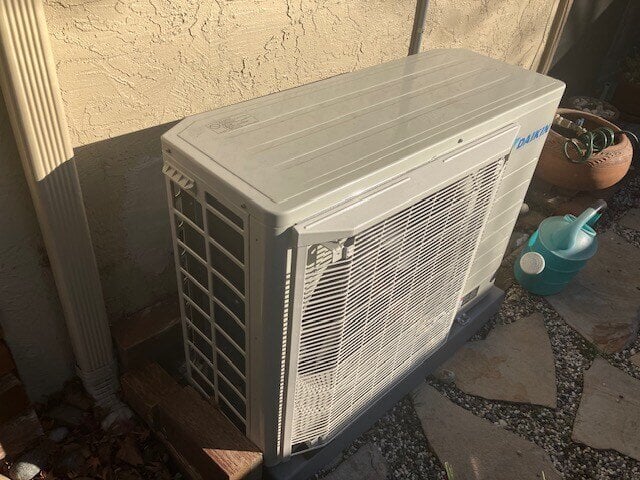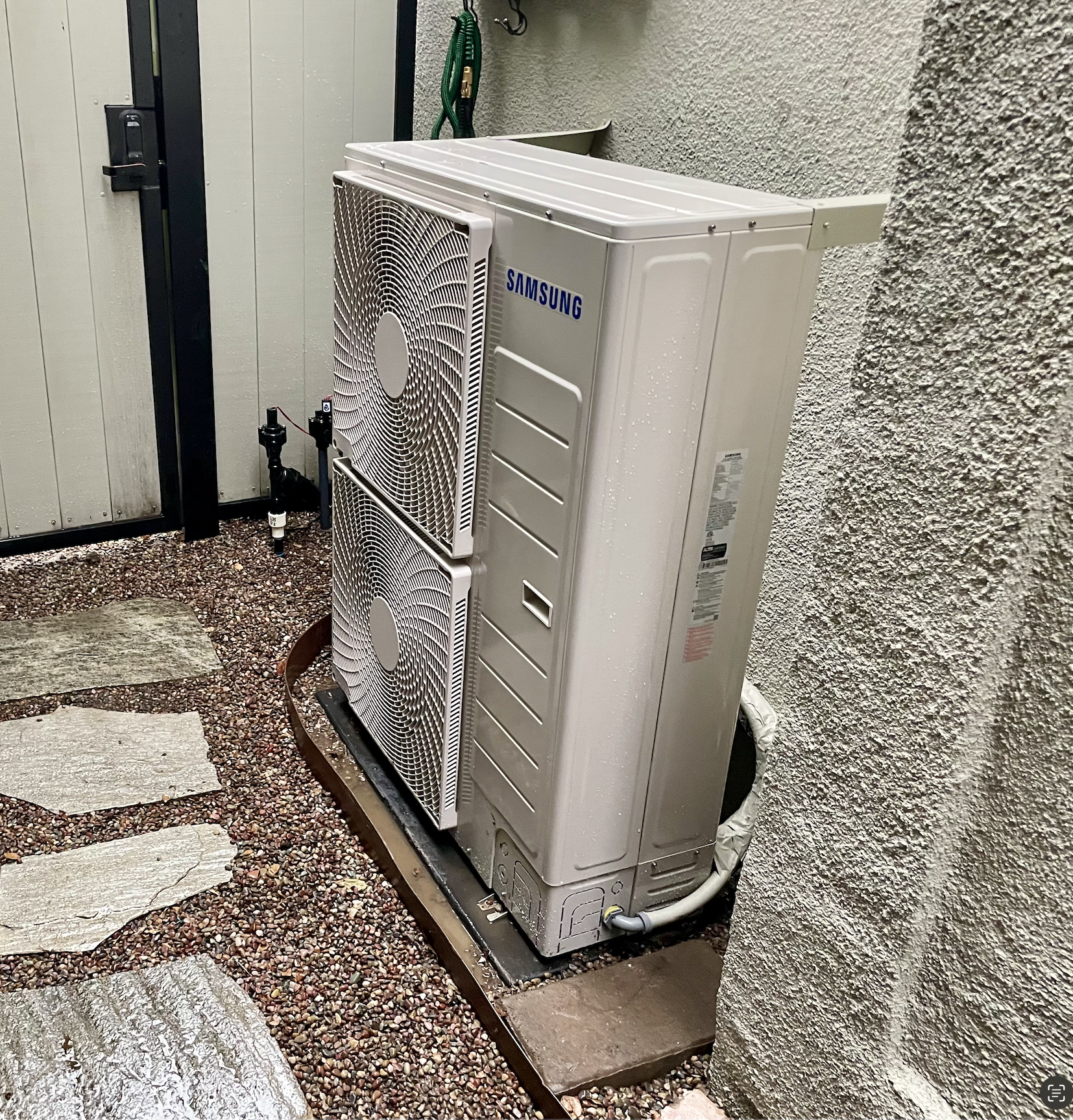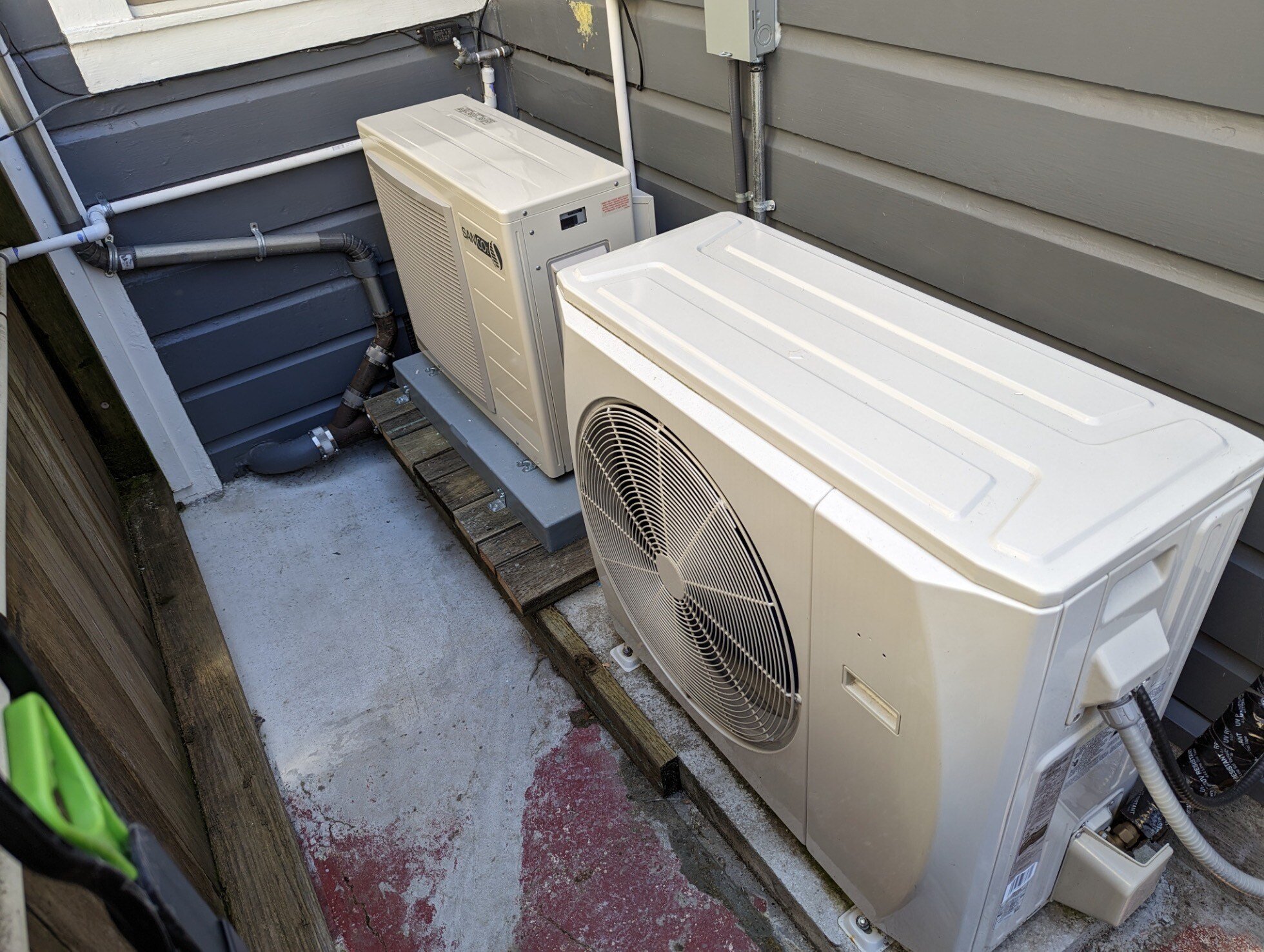The Complete Guide to Heat Pumps: What You Need to Know
Updated September 2024
If you're looking for an efficient, low-cost way to keep your home comfortable year-round, a heat pump could be your new best friend.
These nifty devices keep your home perfectly cool in summer and warm in winter, they're 3x more efficient than gas, and they heat, cool, filter, and dehumidify your air -- all in one.
This guide covers everything you need to know about heat pumps: what they are, how they work, and what types are available. For those of you in the Golden State, get additional information at Heat Pumps in California: Everything You Need to Know.
Happy reading - and happy heating!
Why should you trust us?
Here at QuitCarbon, our expert planners have helped thousands of homeowners evaluate the best equipment options for their homes.
We provide free ENERGY STAR® certified guidance along with vetted local contractors to upgrade your home with heat pumps, induction cooking, EV chargers, solar, batteries, and more.
QuitCarbon has won prizes from the US Department of Energy and we collaborate with the Pacific Northwest National Laboratories and the National Renewable Energy Laboratory (NREL) to improve the accuracy of our content.
Article Contents
- What are Heat Pumps?
- Are They Right for Your Home? (Pros and Cons)
- How Heat Pumps Offer More Efficiency and Comfort
- What to Consider Before Installing a Heat Pump
- Types of Heat Pumps
- Why They're a Good Investment
What Are Heat Pumps?
Heat pumps are a smart and efficient solution for heating, cooling, purifying, and dehumidifying the air in your home. With a heat pump, you can replace all of your existing HVAC systems and redistribute the heat already in the air to control your home's climate.

During the winter, heat pumps extract heat from the outside environment and move it inside your home. During the summer, the process is reversed and used to cool your home.
The result? Your home will be comfortable year-round, and you'll reduce your energy use by up to 50% or more!
You might not have heard about heat pumps, but they're not new. A conventional air conditioning unit is technically a heat pump. The significant operational difference is that a heat pump can transfer heat into your home, replacing your energy-intensive heating system and air conditioner. Heat pumps also dehumidify and filter the air in your home, making them a triple-win solution.
The Environmental Protection Agency estimates that heat pumps can reduce electricity usage for heating by up to 50%, saving you hundreds of dollars per year on energy bills – and cutting your greenhouse gas emissions.
Heat Pumps: Are They Right for Your Home?
Considering a heat pump for your home? Let's break down the pros and cons to help you make an informed decision.
| Pros | Cons |
|---|---|
| Lower energy bills: Heat pumps can cut your energy costs by up to 50% compared to traditional HVAC systems. Plus, they're easier to maintain! | Initial investment: Upfront costs can be higher than traditional HVAC systems, but long-term savings often offset this. |
| One system for everything: Say goodbye to separate AC and furnace units. A heat pump handles both heating and cooling, simplifying your home's climate control. | Installation complexity: Some types, especially geothermal heat pumps, require more involved installation processes. |
| Cozy, consistent comfort: Enjoy even heat distribution throughout your home all winter long. | Electricity dependence: While more efficient, heat pumps still rely on electricity. Consider pairing with solar panels for a truly carbon-free solution. |
| Safety first: With no fuel combustion, heat pumps offer a safer alternative to gas or oil-based systems. | Cold climate considerations: In extremely frigid areas, efficiency may decrease. However, modern models are improving performance in cold climates. |
| Cleaner indoor air: Reduce your carbon pollution with significantly lower greenhouse gas emissions. | Different heat feel: The consistent airflow might feel different from the intense heat bursts of traditional furnaces. |
The Verdict
While heat pumps have some drawbacks, their benefits outweigh the cons for most homeowners. QuitCarbon strongly recommend heat pumps as an energy-efficient and versatile solution for year-round comfort.
Want a second opinion? This video clearly lays out the pros and cons with helpful visuals.
How Heat Pumps Offer More Efficiency and Comfort
Heat Redistribution
Heat pumps are energy-saving champions. Here's why: Unlike traditional systems that generate heat, heat pumps simply move existing heat around, using significantly less electricity. This approach can slash your electric bill by up to 50%.
As an added benefit, many heat pump systems come with built-in air filtration. So not only are you saving energy, but you're also enjoying cleaner, healthier air.
Superior Comfort
Say goodbye to those annoying hot and cold spots in your house. Heat pumps provide even heating and cooling throughout your home, ensuring every nook and cranny is just right. And with ductless mini-split systems, you can control the temperature in each room. No more thermostat battles with your family!
Heat pumps run on electricity, so there's no risk of gas fumes or carbon monoxide. Plus, they're low maintenance – just change the filters regularly, keep the outdoor unit clear of debris, and schedule an annual check-up with a pro.
What to Consider Before Installing a Heat Pump
Unit Location
Outdoor Heat Pump Unit
Heat pumps have an outdoor unit, just like traditional AC systems.
Outdoor units are typically installed on or adjacent to homes. Since they can be placed up to fifty feet away from their indoor counterparts, they can be positioned on a discreet side of the house, beneath decks, or even at a considerable distance from the home.
Aesthetics aside, here are the main things you should consider in where to place your outdoor unit:
- Adequate clearance for airflow. It's tempting to tuck units into tight places for aesthetics, but they need good airflow to work effectively. Steer clear of shrubs, areas susceptible to snow drifts, and any other structures that could obstruct airflow).
- Proper mounting to minimize noise and vibration.
- Protection from extreme weather conditions.
Indoor Heat Pump unit for mini-splits
If you choose a ductless mini-split system, you'll also have wall-mounted indoor units. They're designed to be unobtrusive but they're not invisible. Keep this in mind if interior design is a high priority for you.
- Consider airflow patterns and heat distribution throughout your home. Airflow can be hard to predict, and each building is unique. Generally, open areas are simpler to heat and cool with a single indoor unit, whereas directing heat through doorways into other rooms can be more difficult. For example, rooms with doors that are usually closed might not receive adequate heating from a heat pump situated outside.
- Avoid thermostat conflicts with existing heating systems. Integrating multiple heating systems in the same area can be challenging. For instance, if a boiler thermostat is located in a zone heated by a heat pump, the thermostat might never drop below its setpoint and thus won't activate the boiler. Consequently, other areas within the same zone (like bedrooms heated by the boiler but not the heat pump) might end up being cooler than desired.
- Ensure easy access for maintenance. Installing indoor units too high can make them hard to reach when it comes time to clean the filter or service the unit.

Sizing and Capacity
Proper sizing is critical for optimal efficiency, comfort, and longevity of the system. An undersized unit may struggle to heat/cool your home adequately, while an oversized unit can lead to inefficient operation and increased wear and tear.
Energy Efficiency
Heat pumps are known for their high efficiency, especially in moderate climates. Look for models with high Seasonal Energy Efficiency Ratio (SEER) ratings for cooling and Heating Seasonal Performance Factor (HSPF) ratings for heating.
Cold Weather - No Longer a Major Concern
You may have heard that heat pumps don't work well when it's cold. The good news is that newer air-source heat pumps are much more effective in the cold. Even below 0 degrees Fahrenheit, heat pumps operate with more than double the efficiency of gas or standard electric heating.
Despite these considerations, heat pumps offer great benefits: superior comfort, easy maintenance, healthier air quality, and versatility for any home type. The advantages in comfort, efficiency, and eco-friendliness typically outweigh any minor challenges.
Types of Heat Pumps
Two broad categories of heat pump technology are available: air-source heat pumps and geothermal heat pumps. Let's look at each of them in detail.
Air-Source Heat Pumps
An air-source heat pump is an all-in-one solution that moves heat from inside your home to the air outside (and vice versa) through two main components: an outdoor condensing unit and an indoor air-handling unit.
Air-to-air heat pumps are the most prevalent type in the United States. They're easy to install and maintain, and they offer exceptional comfort and lifetime value. Air-source heat pumps come in both ducted and ductless versions. Ductless heat pumps use small wall-mounted units to distribute and handle air, while ducted heat pumps use a single air-handling unit called a standard split to redirect conditioned air throughout your home.
Geothermal Heat Pumps
Geothermal heat pumps move heat to and from the earth (or a water source) instead of using an outside unit to exchange heat energy. Because the temperature of the ground and water around your home stays relatively constant, geothermal systems are slightly more efficient than a standard air-source unit once they're installed.
Geothermal heat pumps are not as common in private homes since they're more expensive and complicated to install. The installation process itself can be intrusive and lengthy, and servicing geothermal systems can present challenges.
Geothermal vs. Air-Source Heat Pumps
Air-to-air heat pump technology has advanced so much in recent years that the efficiency difference between a geothermal and air-source heat pump is minimal.
For most homes (and all homes in temperate climates like California), air-source heat pumps provide the best mix of comfort, efficiency, and value.
Furthermore, there are easier and less expensive ways to make your home more comfortable than digging up your lawn.
For more on this topic, check out our deeper dive into air-source versus geothermal heat pumps!
Why Heat Pumps Are a Good Investment
Like many clean-energy upgrades, the upfront cost of a heat pump is an investment that translates into long-term savings both in terms of ongoing costs and carbon emissions.
Many heat pumps now qualify for a federal tax credit for up to 30% or $2,000, making them even more affordable.
You may also qualify for additional rebates; visit our Rebates page for more information.
Long-Term Benefits
When you consider the lifetime value of a heat pump, the financial picture changes. Heat pumps are highly energy-efficient and, with proper maintenance, they can last for 15 years or more.
If you live in an eligible area, you can have a heat pump system installed with no upfront cost and pay for it with the money you save on energy. Even if you do pay out-of-pocket, they'll significantly reduce your energy costs and offer excellent long-term value for the money. Contact QuitCarbon to help you determine your eligibility.





